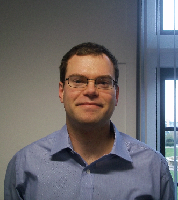Gareth Cole is Open Research Development and Discovery Lead at Loughborough University
Last year, my colleague, Dr Miranda Barnes, wrote about the work we’ve been conducting as part of the Open Book Futures Project. This blog post aims to update on that work and highlight where we’ve made advances and to reinforce how it could not have been achieved without a community effort within, and outside, the team. As Miranda highlighted, Community is key to the project and, in fact, is the heartbeat of the project.
Our work package is looking at the archiving and preservation of open access books. As with all projects we have regular meetings! The broad community the project has brought together with experts and specialists across a number of organisations and disciplines means that we are able to consider a variety of perspectives when conducting our work. Work Package participants include colleagues from Jisc, the British Library, the DPC itself, metadata specialists, publishers, IT developers, researchers, and university open research librarians. This community reflects the wider project which actually has two PIs, one an academic and one a University Librarian.
Having digital preservation experts was a no-brainer for our work. However, we are working with smaller, scholar-led presses where resourcing, staffing, and expertise in this area can be limited; so what may make perfect sense to a preservation practitioner may be less understandable to a publisher. The National Library perspective also brings a different flavour and, in fact, is a separate aspect to our work looking at how National Libraries may be involved in archiving OA books.
Using the expertise from these different disciplines, we have created the Thoth Open Archiving Network. Again, we have focussed on Community as part of this and have worked with colleagues at, for example, the Internet Archive and the University of Cambridge.
Continuing our work this year, we are moving on to look at the preservation (or lack thereof?) of PhD and other Doctoral level theses. Again, this will involve a community and we are already in contact with colleagues from the British Library and a number of UK Universities.
What I hope this short post has identified is that we are working with a wide community of experts. However, what it really emphasises is that those communities have all been really happy to work with us, share their expertise and knowledge and act as critical friends when required. No one we have reached out to, whether they work in national libraries, university libraries, sector organisations or as independent researchers has said no to offering their help. What this shows it that not only should we celebrate communities but that the communities we all work in are also worth celebrating.
